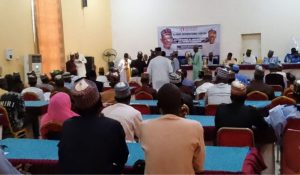
A fintech expert and Executive Director, Financial Services Innovators (FSI), Mrs Aituaz Kola-Oladejo, has described Nigeria as a centre for research and technology innovation.
Kola-Oladejo, who gave this assessment at a press conference to herald the third anniversary of the FSI in Lagos reeled out the achievements of her organisation in the past three years to include the promotion of open innovation amongst top players in the tech ecosystem and enhancement of access to Fintech.
She added, “So far, 16 Fintech API partners including banks already have 321 API end-points on the innovations sandbox, while 125 Minimum Viable Products (MVPs) have been created from the sandbox. With 728 corporate members, 3,438 individual members, 2,535 student members and over 1,900 participants in nine innovation challenges, FSI has indeed come a long way.”
She disclosed that in the past three years, FSI had organised nine hackathons aimed at addressing financial inclusion challenges in agriculture, transportation, health, trade and commerce, as well as energy.
She said that the non-profit organisation, which has members drawn from Africa, Asia, Europe, Central and North America, played a leading role in the promotion of innovative culture in tertiary institutions across Nigeria.
“Right now, FSI has 2,535 student members, 712 campus ambassadors since its launch in 2021, while three universities have shown interest in adopting the FSI platform for tech innovation,” Kola-Oladejo explained, adding, “FSI has offered 141 free start-up clinics, had 114 participants in our Business Validation series, while $81,000 US Dollars was awarded winners of our innovation challenges to commence operations as start-ups.
She added that ” On both national and global scales, FSI has facilitated productivity through youth and startup empowerment, and enhancement of Nigerian tech products.”
FSI is a non-profit organisation committed to enabling startups within the technology and financial space. In its three years of operations, the company has had both direct and indirect impacts on the nation’s technology ecosystem through empowerment, entrepreneurship and mentorship.






